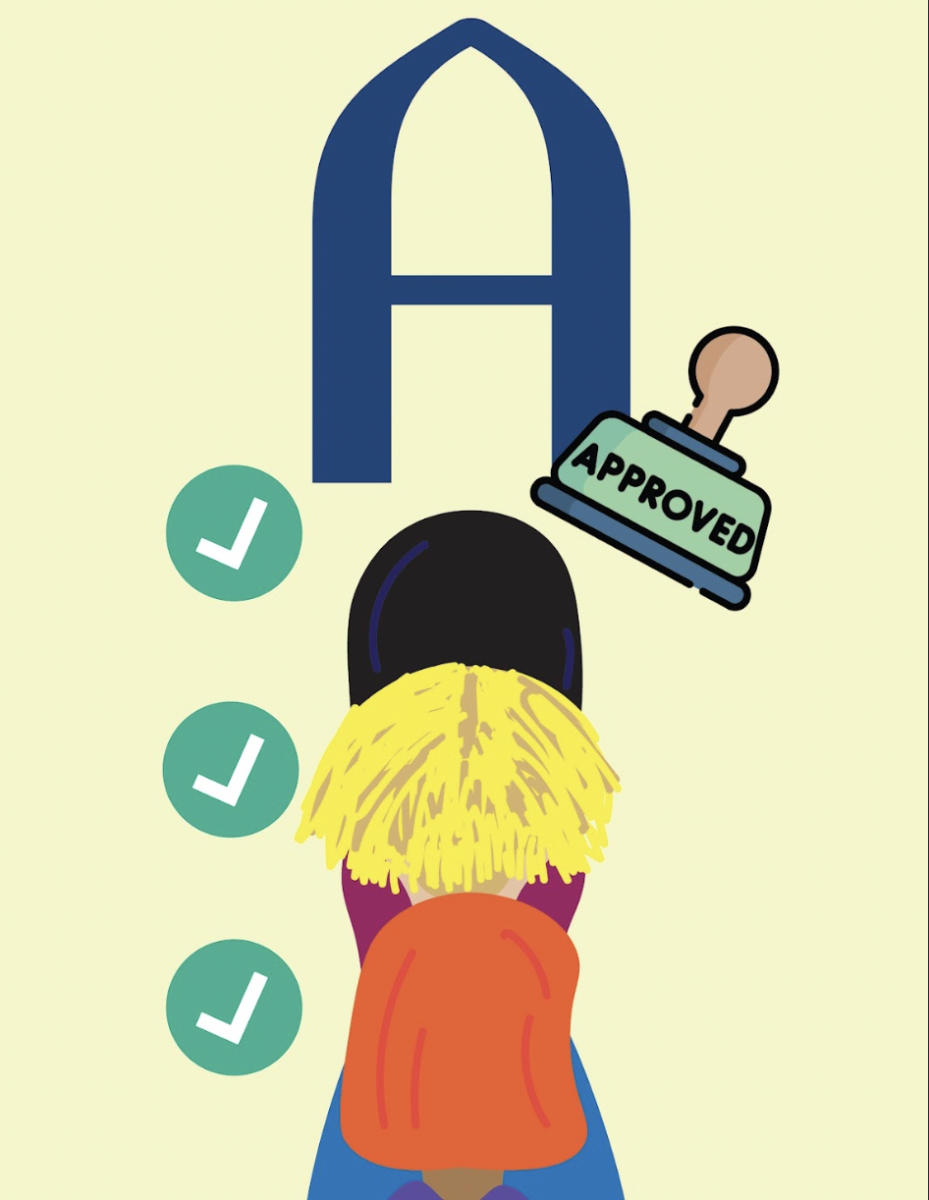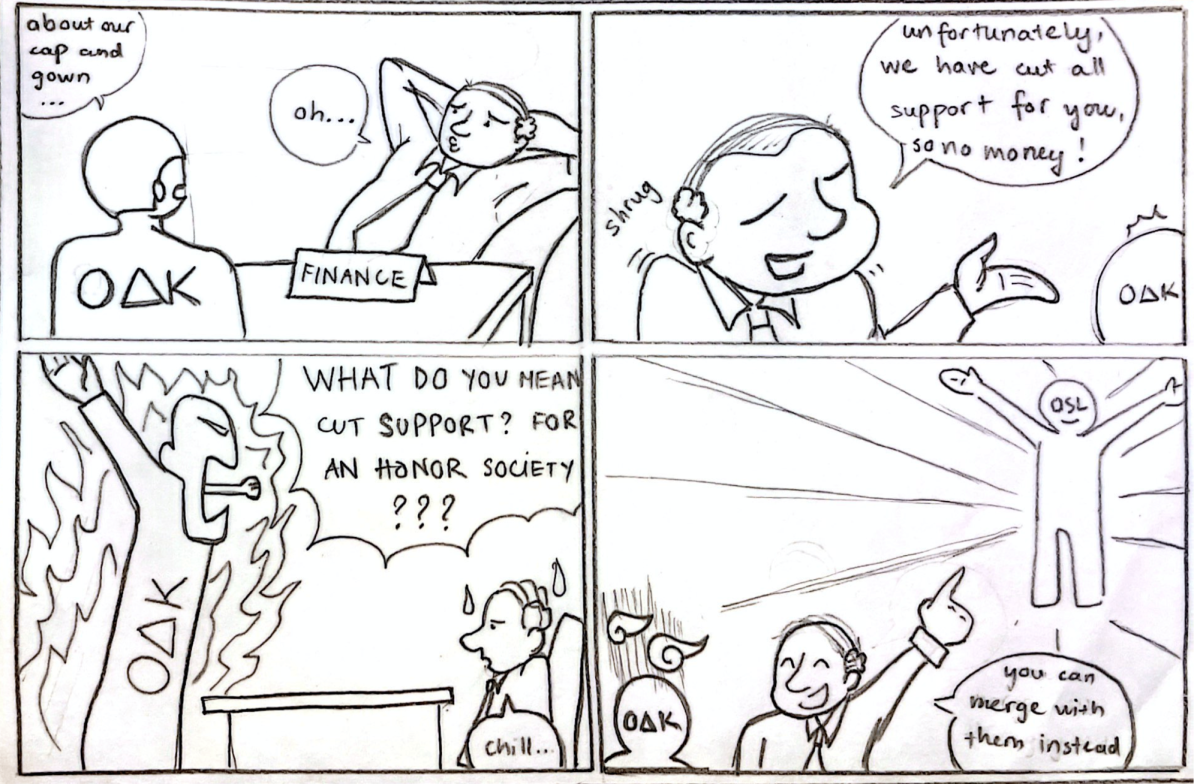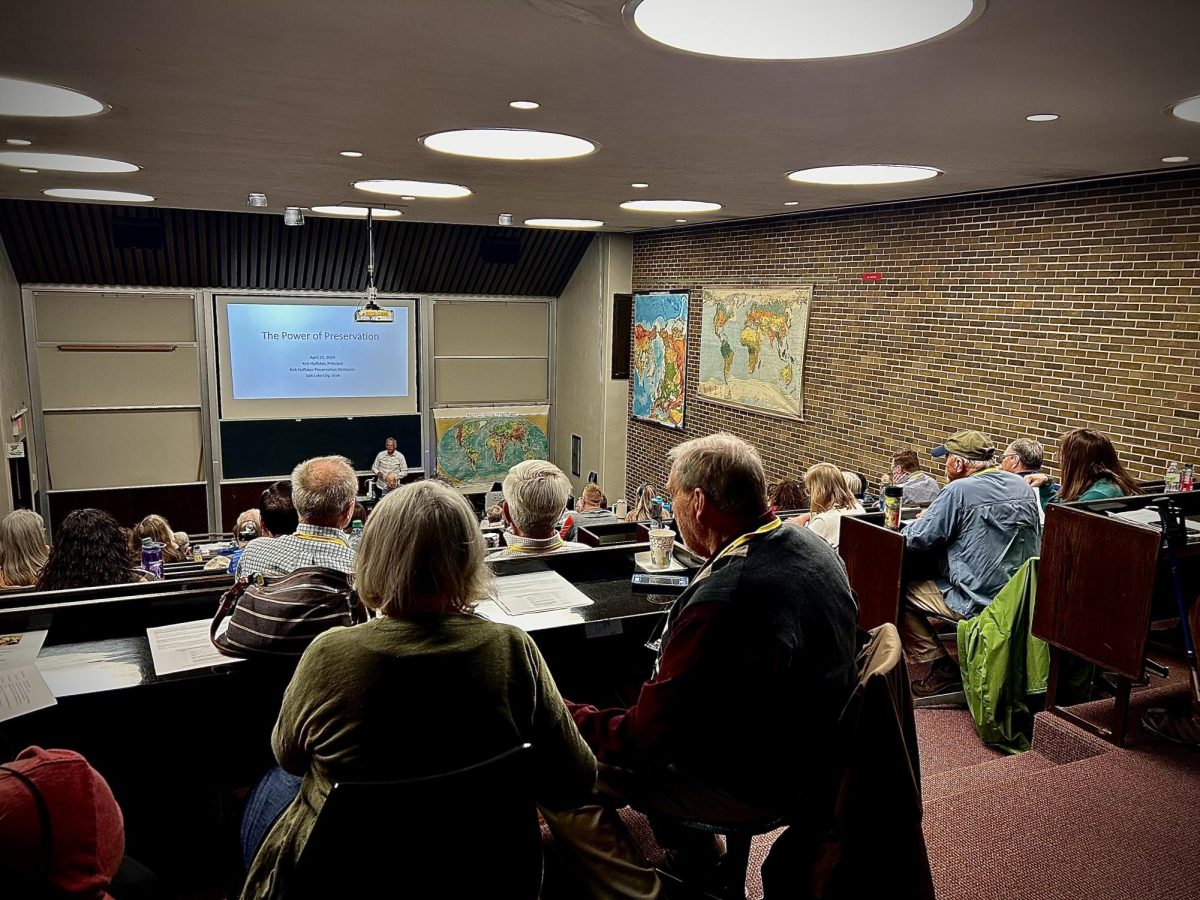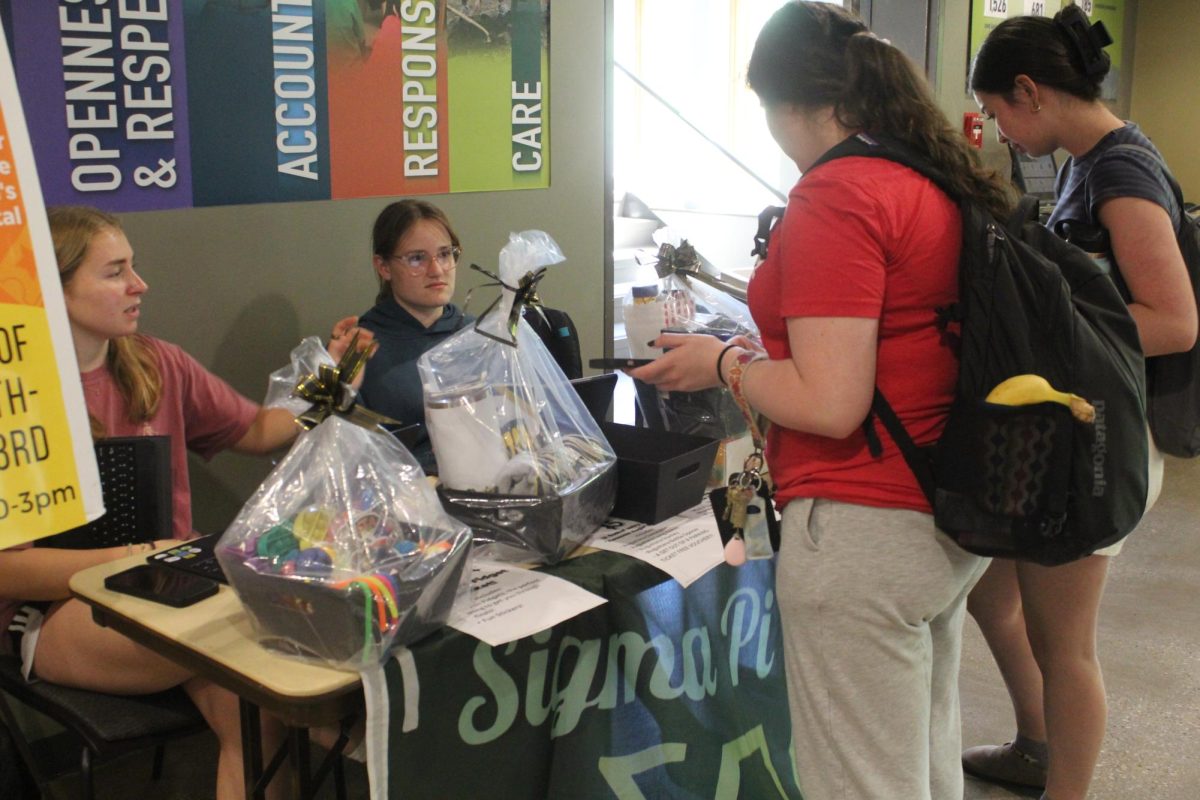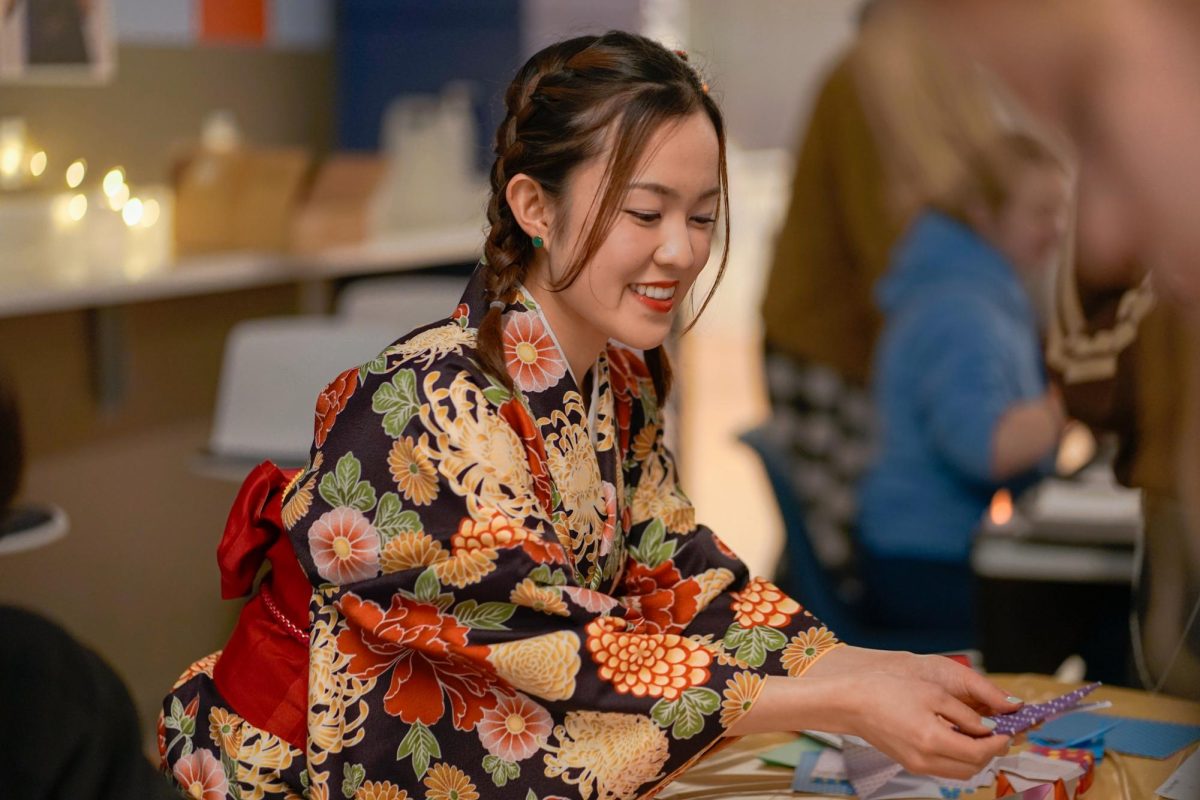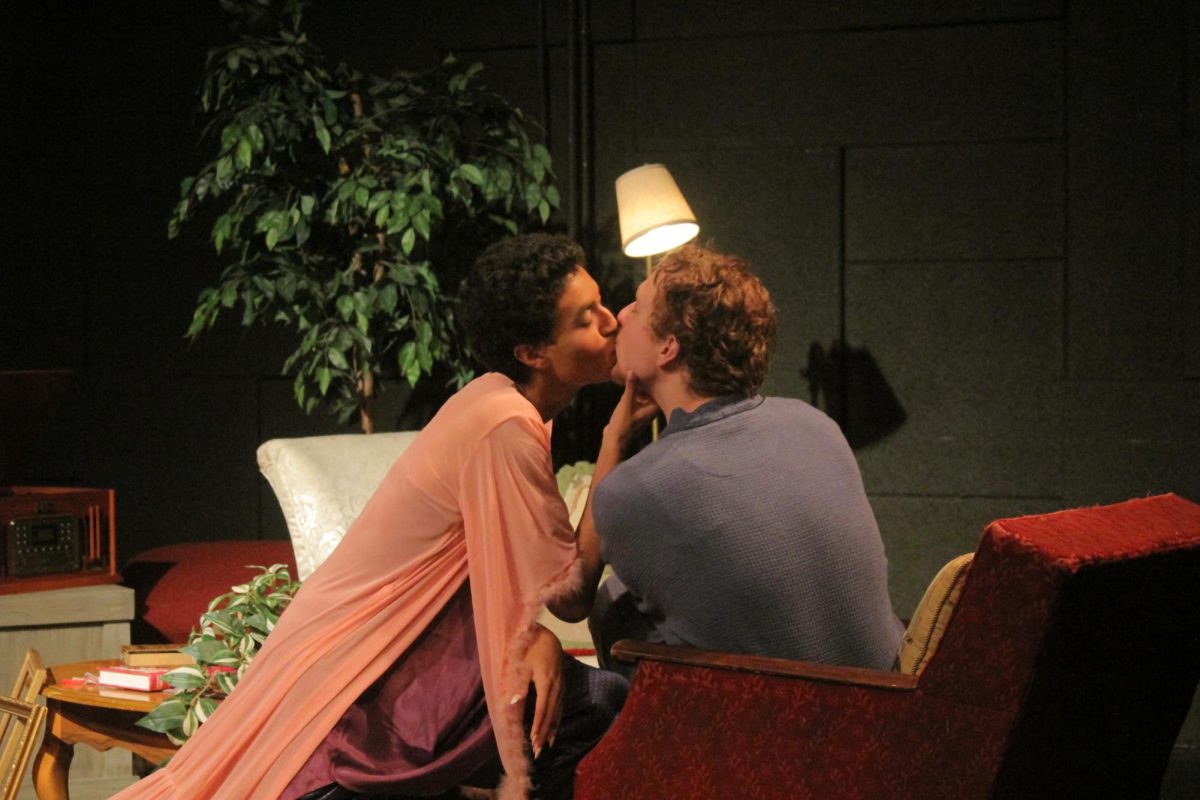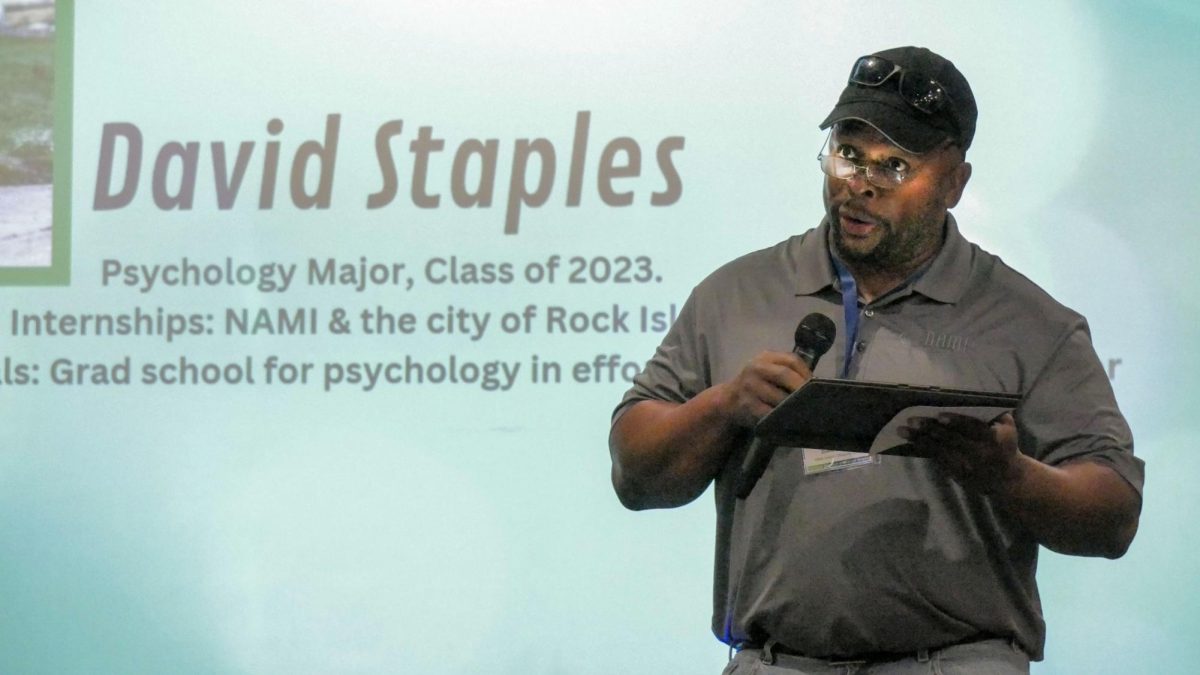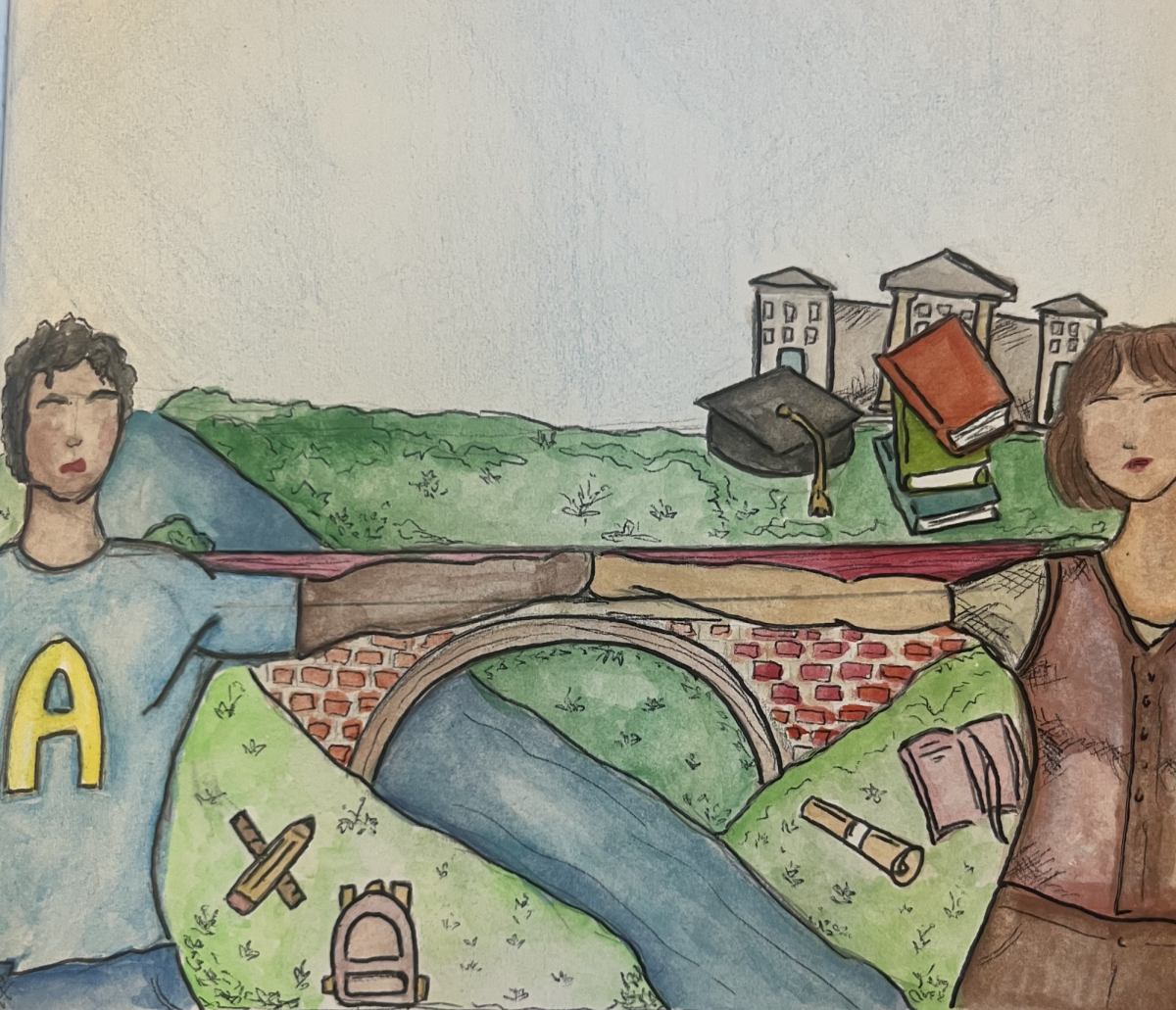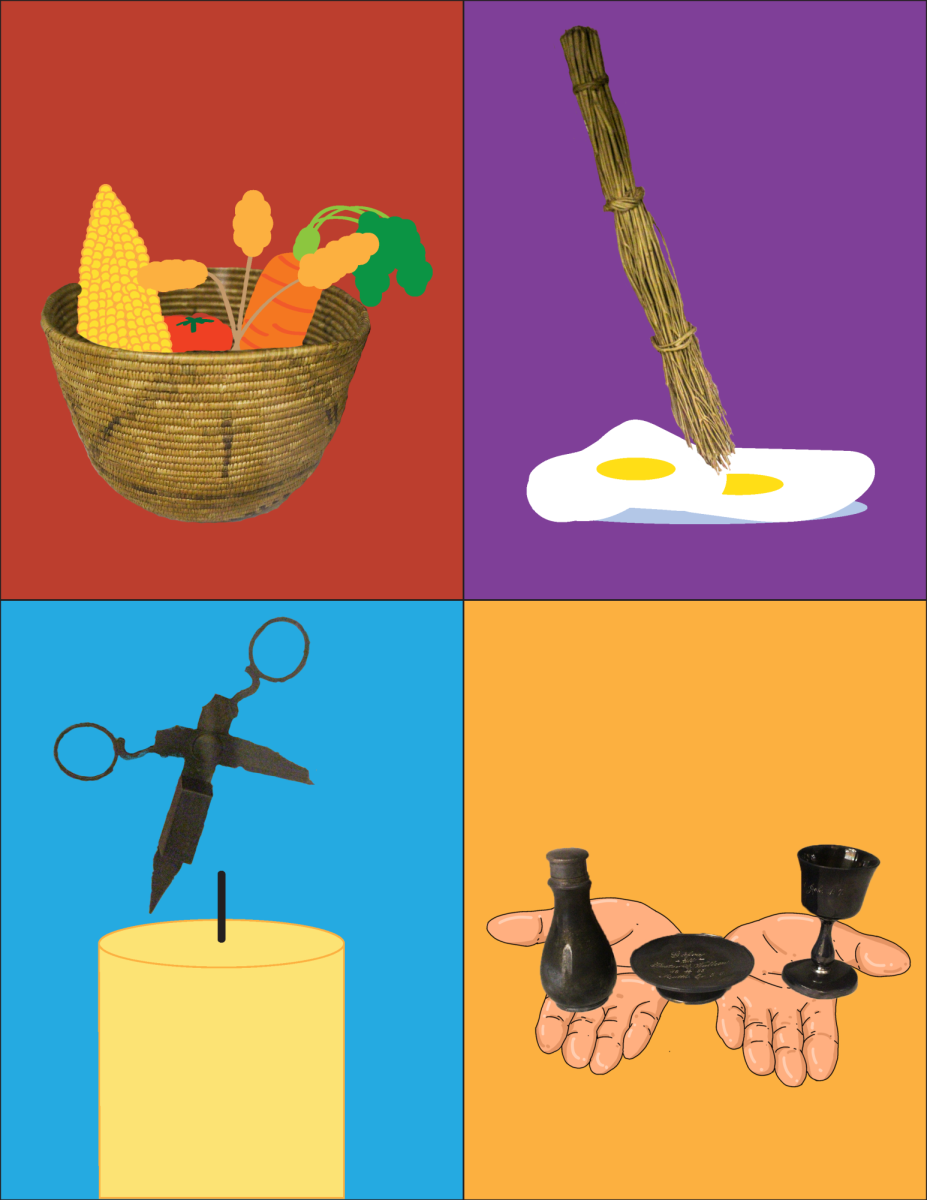Maintaining connections between the past and the present might seem trivial, but the preservation of historical knowledge is both vitally important and complex. Communicating history is a kind of storytelling, and those who take on the job must present accurate retellings of historical precedent, tradition and cultural context with great care for — and appreciation of — a growing list of diverse contemporary beliefs. At Augustana, those stories of college history are granted new life through the work of the Augustana Historical Society (AHS).
A nonprofit organization composed of students, alumni, donors, historians and scholars, the AHS operates under the guidance of Brian Leech, the organization’s president and associate professor of history at Augustana.
Leech said that the mission of the AHS is to “preserve the history of Augustana College and its relation to the Lutheran church and Swedish American immigration and culture.”
What, then, does that preservation look like?
“We carry out that mission through publications, historical presentations and preserving written records and artifacts,” Leech said.
Those publications are put out by East Hall Press, Augustana’s own publishing company and “teaching press,” where students learn about the publishing process through the Augustana class Book Publishing. They produce print materials like newsletters and books, many of which are available through Tredway library. Topics include the spread of ideas and philosophy through immigration, the intersection between faith and science, memoirs and personal stories from the college’s history and many others.
The AHS, founded in 1930, has historically placed a great focus on the specifics of Swedish American life and immigration. Though these are undoubtedly foundational to the college’s development, students now enter college with more multicultural traditions, varied religious beliefs and vibrant diversity. As demographics at the college continue to change, storytellers must adjust accordingly to tell the stories that haven’t been taught.
“This spring, for instance, we’re hoping to have a session about the history of the Asian Studies program at Augustana; kind of a way to tell people about how it came to be, its birth [and] its development,” Leech said. “There’s a lot of great history to learn and preserve and tell; if you don’t have someone dedicated to it, it just gets lost.”
Physical publications and presentations are ways to keep the recent past in the public eye and the historical record. The most recent publication, set for release on Nov. 28, exemplifies a commitment to connect modern life at Augustana with the history that brought us to where we are today. Titled “Feasts and Festivals: The Story of Winter Traditions at Augustana College,” the book was born from a class project and represents the collective work of students and faculty alike. Students worked in teams groups to design the interior and cover of the book in InDesign.
Leech, in addition to his work as AHS president, teaches U.S. history at Augustana. As part of an oral history course, his students conducted interviews and gathered stories about the history of Augie’s winter traditions. Although publication was planned for the following year, COVID-19 restrictions in 2020 meant that East Hall Press was forced to pause production. The materials gathered by those students sat unused for years until East Hall Press was able to resume operations. In the Fall of 2022, the press reopened under the direction of Brett Biebel, teaching fellow of English and First-Year Inquiry at Augustana.
“I envision East Hall Press as a campus interest publisher. There are some philosophical reasons for that choice, but there are also some practical reasons,” Biebel said. “It’s really just me [running East Hall Press]. I get a lot of help from students, but it’s easier to focus on campus interests than to sell to a wider market.”
The material gathered by Leech’s oral history course fit this vision quite well and will continue with an anthology created this coming year. Biebel saw an opportunity to keep students close to the heart of the AHS’ recent project and brought the material to his course, ENGL 300: Book Publishing.
“Students built the book. Everybody in the class were the main architects of this in terms of layout and design,” Biebel said. “I want East Hall Press to serve the students as much as possible. The goal is to teach practical skills about marketing, design, copy editing and layout.”
“Feasts and Festivals” constitutes a collaboration between current students, Augie alumni, faculty and the members of the AHS, who answered questions about structure and copy editing. In it, students tell the story of Sankta Lucia and the historical subversion of gender norms. They retrace Augie’s celebration of Kwanzaa and the search for racial unity. They describe the loss of “tray sledding” as a tradition and the continued evolution of Christmas Extravaganza from the Scandinavian tradition of “Julebokking.”
Though academic work makes up the majority of the AHS’ operations, the group is also responsible for the physical maintenance of many of the college’s prized artifacts. Their meeting room in Denkmann is filled with historical artifacts from the college. If the stories of tradition contain the words spoken on the historical stage, the material culture contains the props.
“We hold some artifacts of the college’s past; possessions of former presidents and materials from Swedish immigrants,” Leech said. “Most are written documents that we’ve gathered and given to either the Swenson Center for Swedish Immigration Research or Augustana Special Collections.”
The AHS has had profound impacts on East Hall Press with their resources and support. Presentation attendees from the college and the Quad Cities area have benefited from their retelling of often overlooked stories. It has compiled and published the work of figures like Fritioff Fryxell, Thomas Tredway, Conrad Bergendoff and other key contributors to the college.
It can be difficult to examine history and recognize its humanity without looking closer, but the way that campus community members live, the traditions they practice and the causes they rally behind all constitute tomorrow’s history.
“We’re trying to get beyond just covering the [college’s] Swedish past and connections,” Leech said. “There’s been a lot of hard work to diversify the things we’re doing and the audiences we’re reaching.”
Biebel said that works like “Feasts and Festivals” remind us of the simultaneous importance and impermanence of tradition.
“It’s always good to understand how traditions evolve,” Biebel said. “[The book] is trying to showcase the campus history that a lot of students might not think of.”
There will be an official release party for “Feasts and Festivals: The Story of Winter Traditions at Augustana College” on Nov. 28 at 5:30 p.m. in Gävle room #1 and over Zoom. East Hall Press is currently accepting essay submissions from on-campus and APEP students for a 2024 publication about student life. Questions can be directed to [email protected].
